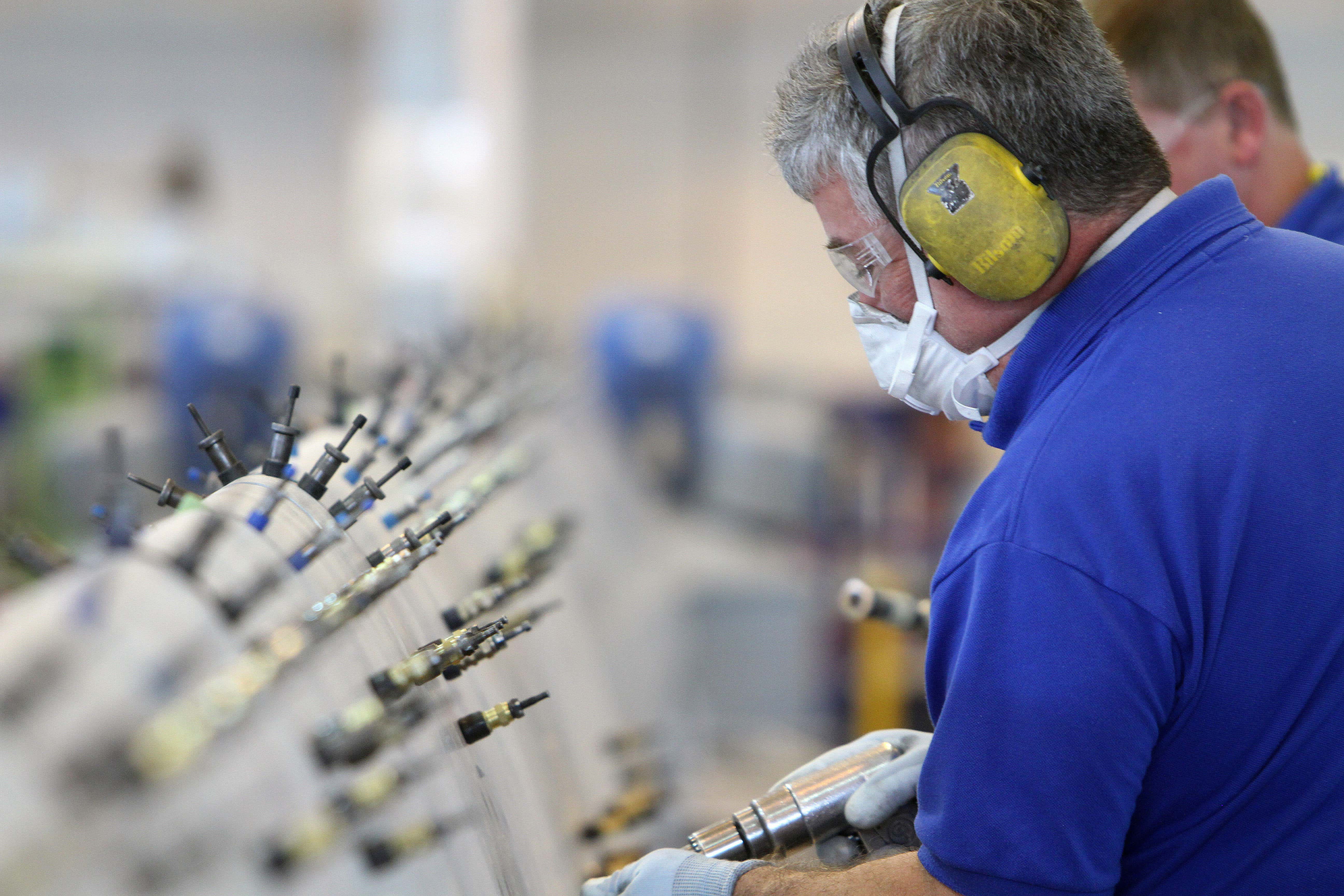UK factories ‘more optimistic after election’ as activity jumps to two-year high
The closely watched S&P Global UK manufacturing PMI survey recorded a reading of 52.1 for last month, up from from 50.9 in June.

Your support helps us to tell the story
As your White House correspondent, I ask the tough questions and seek the answers that matter.
Your support enables me to be in the room, pressing for transparency and accountability. Without your contributions, we wouldn't have the resources to challenge those in power.
Your donation makes it possible for us to keep doing this important work, keeping you informed every step of the way to the November election

Andrew Feinberg
White House Correspondent
Britain’s manufacturing sector saw activity jump to a two-year high in July amid surging optimism after Labour’s landslide victory, a report has shown.
The closely-watched S&P Global UK manufacturing PMI survey recorded a reading of 52.1 for July, up from 50.9 in June and above the 51.8 indicated in last month’s “flash” estimate.
The sector has now remained above the 50 mark – which indicates growth – for the past three months.
The report said growth in production lifted to its highest level since February 2022, while new orders likewise strengthened.
Hopes for an economic revival and reduced political uncertainty took confidence to one of its highest levels for two-and-a-half years
It also revealed workforces in factories rose for the first time in nearly two years, with the survey showing a boost to confidence levels since the election result in early July.
Rob Dobson, director at S&P Global Market Intelligence, said: “Hopes for an economic revival and reduced political uncertainty took confidence to one of its highest levels for two-and-a-half years, with 60% of companies surveyed now forecasting output will rise over the coming 12 months.”
But he added: “Inflationary pressures remain a blot on the copybook, however, with input costs rising to the greatest extent in one-and-a-half years.
“The ongoing Red Sea crisis and associated freight issues are having a severe impact on prices, which are then sustaining a focus on cost-caution and cash flow protection at manufacturers.”
He cautioned the Bank of England would likely “take a cautious approach to loosing monetary policy amid these signs that inflationary pressures may be pivoting away from services and towards manufacturing”.
The report showed factory selling prices lifted at the quickest rate since mid-2023 as firms looked to pass on higher cost inflation, which rose at the fastest pace for 18 months.
Louise Smith, managing director at Interpath and a manufacturing specialist, said: “Input prices are still high and businesses will take time to shake off the other, longstanding pressures that still stalk them, such as international competition, skill shortages, supply chain fragility, inventory management and the drive to automation.
“This is still feeding into rising insolvency figures across the sector, particularly smaller businesses that have struggled to cope with the market conditions.”
Subscribe to Independent Premium to bookmark this article
Want to bookmark your favourite articles and stories to read or reference later? Start your Independent Premium subscription today.